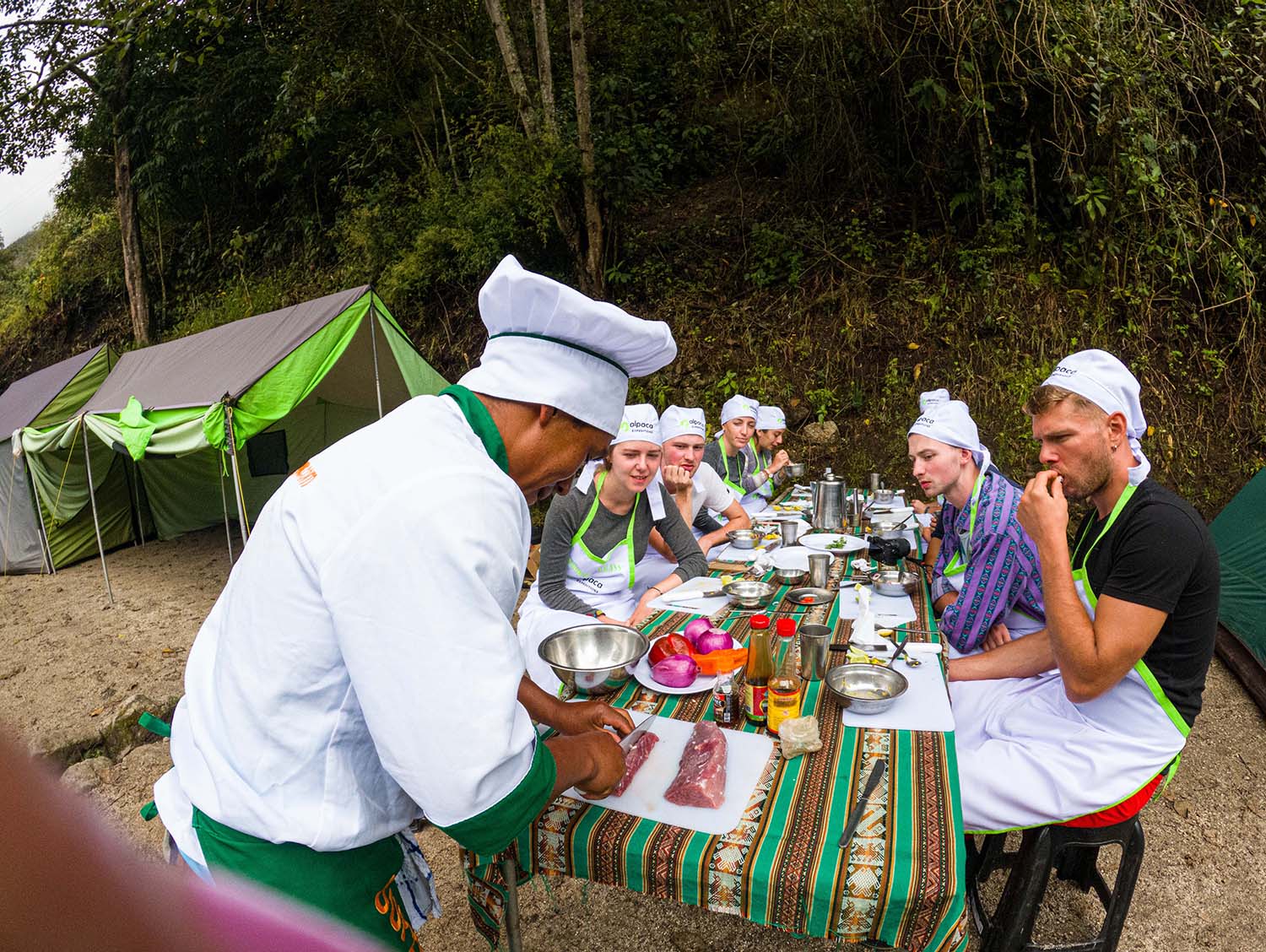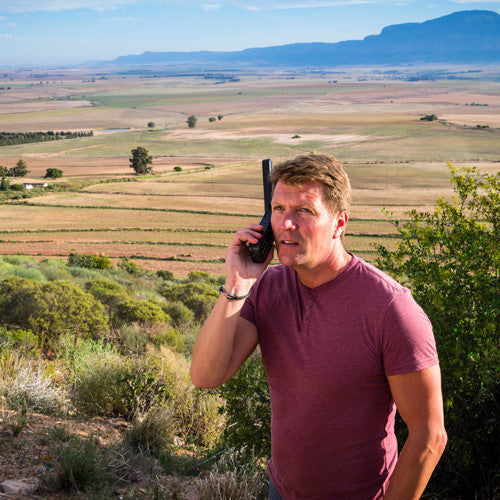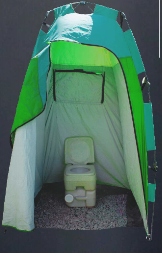The Alpaca Expeditions Difference
Sustainable Travel Leader & Local, Indigenous Company Role Model
Make a Positive Travel Impact – Alpaca Expeditions Shows You How
Alpaca Expeditions puts sustainability in travel & business at the heart of their award-winning Peru trekking company. Travelers with Alpaca Expeditions know exactly what this company stands for and how they actually “deliver” sustainability in every thing they do in their business operations. Here’s how Alpaca Expeditions leads in sustainable travel and directly empowers its Peruvian communities as a local, indigenous leader.
Travelers impact the places they travel. This can be both good, and bad, with direct and indirect consequences. Travelers actually “vote” with their dollars, euros, pesos, yuan, yen, etc. on what’s important – through their travel choices. This has immediate, and long term economic, social, cultural and environmental impacts on the people and places they visit. We all have a choice, to be part of the problem, or be part of the solution. We invite you to learn how traveling with us positively impacts the people, place and planet we serve.
From Indigenous Inca Porter to Tourism Ecopreneur
Alpaca Expeditions was founded in 2012 by Raul Ccolque, an indigenous Incan who grew up in the tiny village of Sequeraccay, Peru near the Sacred Valley, about 25 kilometers north of Cusco, Peru, and at 3300 meters elevation. Raul grew up in a traditional farming village with customs largely unchanged through the centuries. Quechua was Raul’s first language, and he didn’t start to learn Spanish until he was 13 years old. He went to elementary school and high school there in his village. His dream was to be a police officer, and he joined the army after high school to start that dream. He served for 2 years in the army. Along the way, a friend from his village invited him to be a porter on the Inca Trail. That moment changed everything for Raul’s dreams and vision. He completed his army service and switched careers. He was enthralled and captivated by the new world of these foreign visitors to his Andean home region – their languages, their customs, their worldview. He threw himself into learning everything he could about them and tourism as a porter, then a guide, and also headed off to University to study tourism and English.
Raul’s indigenous experience is why Alpaca Expeditions is committed to living and sharing the 4 pillars of global sustainable tourism, in the process becoming the leading tour operator in Peru. Alpaca Expeditions now competes head to head with much larger and well funded global tour operators, all serving international adventure travelers to the Machu Picchu region.
Alpaca Expeditions has been redesigning Peru adventure tourism in trekking since its inception, and continues to lead by example. Raul and his staff are quietly committed and deeply driven to create a successful tourism business that raises up all who come in contact with their company – staff, communities, and guests.
Rooted in Peru’s Trekking Industry
Raul worked for 3 years as a porter and another 4 years as a guide, on the Inca Trail. Each year he would make from 45 to 50 trips hiking up the 43 km (26 mi) Inca Trail. The guides and porters then returned to Cusco via public bus and train to pick up the next group of trekkers and do it all over again. In this time, he saw and experienced how other companies, including the ones he worked for, treated their porters and guides, and how customers also treated the trekking support staff. Having the lens of working at the front lines of Peru’s trekking tourism industry, first as a porter, then as a guide, Raul knew how he wanted to run a new company. When he established Alpaca Expeditions in 2012, he prioritized three key principles from his insider lens: 1) an exceptional work environment for porters and guides – the foundation of any tourism company, 2) community support through various social & economic projects to help the villages where the staff, and he himself, came from to benefit from trekking tourism, and 3) care for the environment always. No platitudes here, he knew exactly what porters and guides needed and wanted, since he was one himself. He also knew what villages needed and wanted, because he comes from a remote village himself. And, he saw the environmental degradation resulting from tourism unchecked. Learn more about the history of Alpaca Expeditions here.
Alpaca Expeditions practices adventure tourism that is regenerative to the communities and people it serves. Certainly the pandemic of 2020-2021, and ongoing endemic since 2022, has shown many travelers how important global sustainable tourism is to better protect heavily visited tourism destinations and local communities.
What is Sustainable Tourism?
The United Nations World Tourism Organization defines sustainable tourism as:
Sustainable tourism is tourism that takes full account of its current and future economic, social and environmental impacts, addressing the needs of visitors, the industry, the environment and host communities. – UNWTO
Travelers with Alpaca can see and experience how Alpaca Expeditions embodies UNWTO’s definition of sustainable tourism. This definition is embodied in action and transparency in the Four Pillars of Sustainable Tourism per the Global Sustainable Tourism Council (GSTC):
Alpaca Expeditions Invests in Measuring its Sustainability Impact
GSTC Pillar #1: Effective Management
This 1st pillar is about effective management and measurement of sustainable practices across the tourism business. Alpaca Expeditions now has four ISO (International Standards Operations) certifications from the third party certifying organization Bureau Veritas. These certifications require hard work, total transparency, and months if not years to fulfill.
- ISO 9001:2015 – Quality Management Systems and
- ISO 14001-2015 Environmental Management Systems.
- ISO 21101 Adventure Tourism Safety Management Systems
- ISO 45001 – Occupational Health and Safety
Getting these certifications is forward-thinking, walking-your-talk, tourism leadership at its very best. It indicates Alpaca’s commitment to managing and measuring results of its environmental impact and total focus on delivering the highest quality tourism services to their customers.. Alpaca is one of the few companies to achieve all these ISO certifications in Peru, for international or local operators.
How Can Travelers Tell Real Sustainability Practices from Marketing Spin?
Savvy travelers want to make a positive impact with their travel, but how do they know what’s real or not with the companies they are interested in? They do their sustainability homework! They, and you, can rely on external, third-party, internationally vetted certifications or accreditations in authentic sustainable tourism practices. This is especially helpful to establish credibility for indigenous-owned companies who offer adventure tourism in remote regions of the world. Third party certifications continue to gain value as an important ranking factor for travelers to assess how well a company actually delivers on its sustainable tourism statements.
Alpaca Expeditions Invests In its Indigenous Staff & Communities
GSTC Pillar #2: Social & Economic Programs
Alpaca Expeditions walks its talk with a wide variety of consistent, relevant, and collaborative social and economic support to its almost exclusively indigenous staff and their villages. Pre-pandemic, Alpaca was employing between 450 to 500 staff at peak season. Alpaca is proud to support its staff with real living wages and important work and social benefits so that they can better provide for their families.
1. Porter Welfare & Wellbeing:
Alpaca Expeditions invests in its Porter’s House, Porter’s Bus, Porter’s Doctor, and Free Quality Gear & Equipment for all porters (and guides)
Alpaca’s Porter Welfare program is legendary. It is a role model for other companies and it stems directly from Raul’s personal experience as a porter and the connection he has to every member of his team. Alpaca invested in the services that Raul felt were missing in other companies he worked for.
The foundation of the Porter program is above market wages, respect and inclusion as collaborative leaders in ensuring the best quality trekking operations, and full porter support on and off the trail. This support includes free health care, free high quality hiking gear and personal gear for work, and Porter’s House, Porter’s Bus, and Porter’s Doctor.
The Porter’s House & Porter’s Doctor: Free Pre- & Post-Trek Lodging & Healthcare
The Porter’s house is free and provided to all porters for before and after their treks. The house includes bunkrooms, hot showers, and serves meals for all porters, prepared by an Alpaca chef. The Porter’s House also includes a private Porter’s doctor on staff for Alpaca specifically to do free medical checkups and provide free healthcare services to all porters and guides. This ensures that the porters are well rested, well fed, and in good health to do their trekking jobs. The Porter’s Doctor is a benefit unique to Alpaca Expedition porters and guide staff.
Porter’s Bus – Comfortable, Private Travel To and From Treks
Alpaca Expeditions also provides a Porter’s Bus, and is the only company in Cusco to do so. Other companies don’t provide transportation to the trailhead for any treks. Instead, their porters must take public buses from the countryside into Cusco, and then another bus from Cusco in the wee hours of the morning to the actual trailhead in order to start work at 3 or 4 am.
“We treat our porters with the same dignity and respect as we do our clients. Just as our clients enjoy our private, comfortable transportation to and from our trekking trails, so do our porters. Alpaca Expeditions is the only company in Cusco to have private buses dedicated solely to our “Green Machine” Porters’ use.” – Alpaca Expeditions
Porters Get Free, High Quality Trekking Equipment & Gear
Staff are outfitted with free trekking equipment and gear, and all the same quality camping gear that is used for Alpaca trekking customers. This would be a basic requirement for adventure companies operating multi day hiking trips in the USA, for example. What stuns many trekking visitors though, is that other Peruvian trekking companies are not providing the same quality gear and equipment for their staff, as for their guests. Again, Raul experienced this first hand and vowed to change it with his own company. All Alpaca porters get free hiking gear that includes high quality hiking boots, the same sleeping tents and sleeping pads as guests, and Alpaca uniforms that are high quality, branded outdoor clothing. Porters in other companies don’t always get free quality gear provided to them as part of their work benefits. Unlike Alpaca’s porters, many others still wear sandals instead of hiking boots, sleep outside or in caves on the trail, or in the kitchen tents.
We are Direct Descendants of the Incas
Alpaca Expeditions porters are indigenous descendants of the Incas and speak their native Quechua language. Alpaca supports porters to develop into guides, and to get higher education and English language training, just like Raul got almost 2 decades ago. The porters are proud of their work, and Alpaca Expeditions is proud of their porters – they are one family and it shows in their ongoing social and economic policies for their staff.
Learn more about The Porters of Alpaca Expeditions
2. Women’s Empowerment: Alpaca Invests in Women Porters and Guides
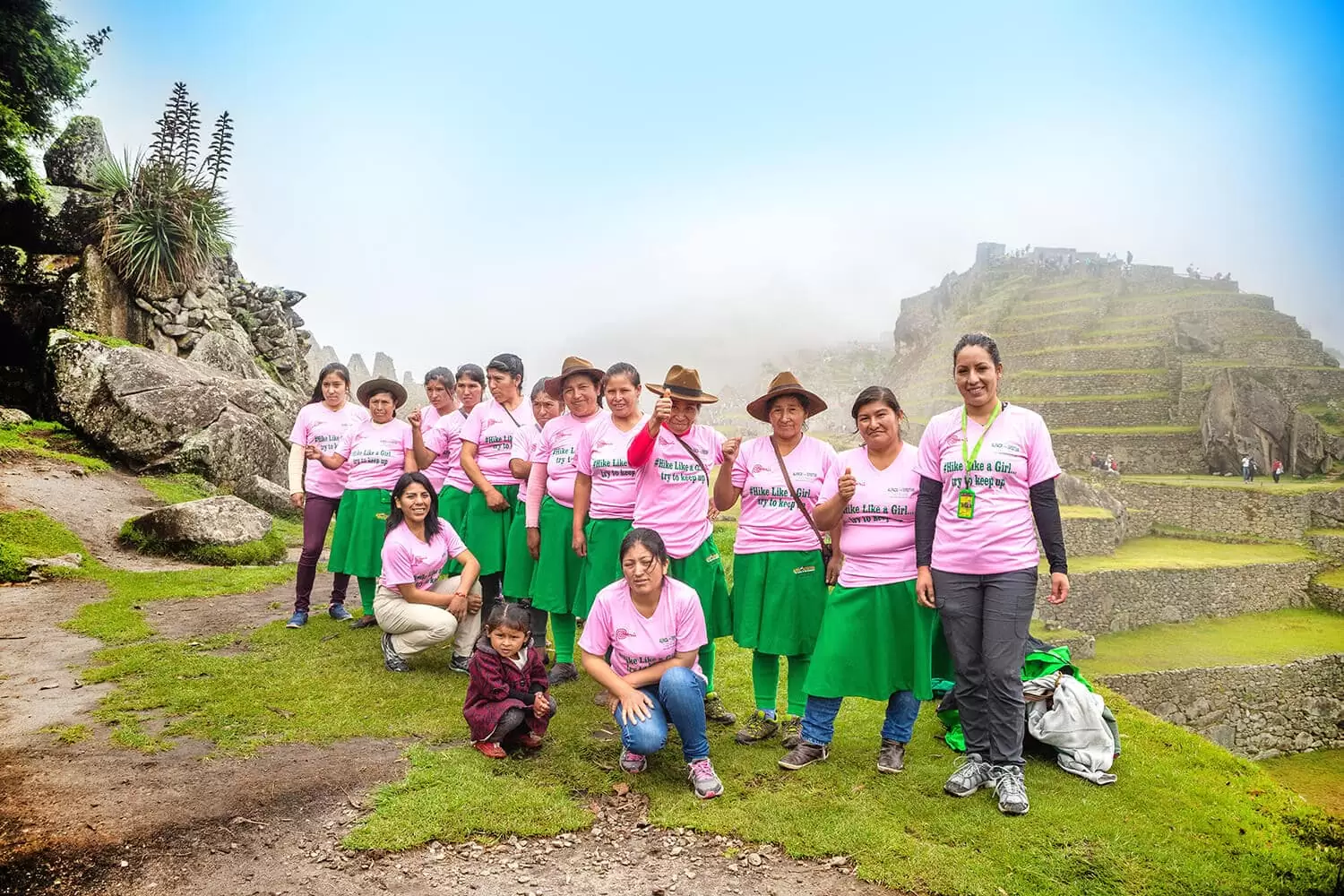
Alpaca Expeditions -a first local company to hire women. Raul is a visionary indigenous Peruvian – gender equality has always been a dream of his. He was inspired by the hard work and big vision of his mother. He grew up as one of 5 children in their subsistence farming family, and she encouraged him to pursue his dreams. Alpaca Expeditions hired the very first female local Peruvian guide back in 2017. They followed with hiring female porters in 2018. Now they have women working in every role at the company – chefs, managers, porters, guides, and office staff in sales & accounting. Alpaca supports women working by helping with services for their children at home, paying living wages above market rates, providing free health care, and supporting better education for children in the villages. Per Raul, it’s been slow going, due to cultural barriers and traditional family barriers of marrying young and raising many children. But, despite this, Alpaca remains committed and looks at this as one step at a time, building the next generation of equality. Learn more about their Empowering Women in Peru social and economic initiatives here.
3. Villages Healthcare and Dental Care:
Alpaca Expeditions knows the impact of the lack of effective health care and dental care in the villages, and which villages need the most help. This is because their staff is from these villages and is empowered and included in all company social projects. As a local company with roots deep in the many remote villages that the staff are from, Alpaca is able to get the right support immediately to the right places. The company provides free healthcare to all the villages through visiting doctors that the company pays for. The same is true for dental care, which is sorely needed in the Andean villages where the custom is to brush teeth with only water. Alpaca hires a team of dentists to visit the villages, clean the children’s teeth, distribute oral cleaning kits, fill cavities, correct crooked teeth, extract teeth, and teach proper brushing and oral care. They call it “Fixing the Smiles of Andean Children”. Learn more about these programs here.
4. Education & Schools Support
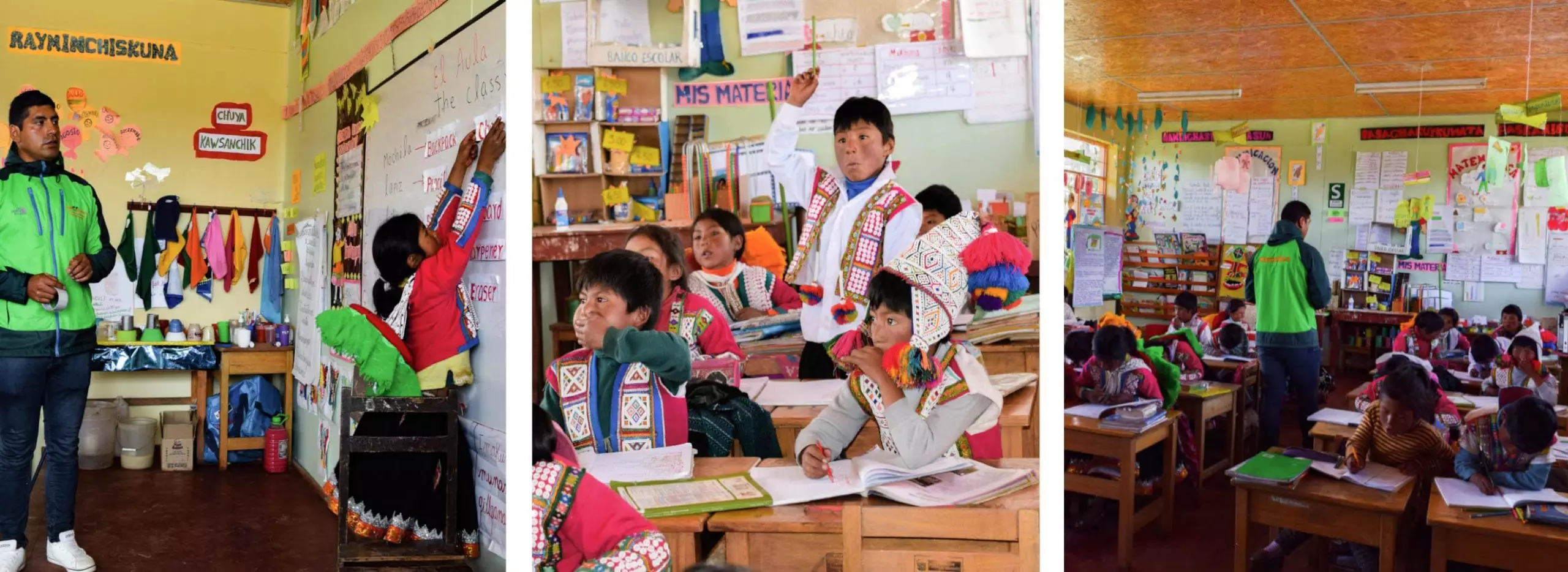
Alpaca Expeditions knows the importance of education to help children dream big and start to fulfill those dreams. That is how their founder got to run the #1 tour company in Cusco! Every year, Alpaca donates computers, books, and school supplies to remote village schools, like the one Raul went to for elementary and high school education. Since 2015, the company also pays the salary of a full time teacher in the community of Wakatinku to teach math, art and English. The next visionary indigenous leaders of adventure tourism in Peru are learning their abc’s now!
Through health care, dental care, education support, and working women’s support, Alpaca is reinvesting its ecotourism profits back in their communities. This is the future of travel & tourism at its best, with operators taking the lead to support, sustain, and improve the lives of the people and places their company benefits from.
Alpaca Expeditions Invests in Protecting & Sharing Their Inca Culture & Heritage
GSTC Pillar #3: Cultural
Alpaca Expeditions revels in sharing the rich cultural heritage of its Inca ancestors, and has created both training programs for staff as well as special “field trip” programs for children of the region’s remote villages and the extended families of Alpaca’s staff.
1. Cultural Training for Guides
Alpaca guides are thoroughly trained in their cultural heritage and are proud to share their insights with their trekking and tour guests. This is probably the most powerful part of an adventure travel trip with any indigenous tour company. The pride, the insider knowledge, the language interpretation of key concepts in Quechua (the native language of the Incas) – is transformative for guests. Alpaca guides all have a degree in tourism, speak English, and many have additional degrees in history and archeology. Alpaca employed more than 60 guides, pre-pandemic. Guests rave about Alpaca guides, and it is in no small part due to the guides’ extensive knowledge and pride in their Inca culture that they are so happy to share.
2. Connecting Kids to their Inca Heritage
The company started a unique program in late 2019, called “Ricsishun Nukanchispata” in Quechua, which means “Knowing Ours”. In Andean villages, most children never leave home and grow up seeing only their village. With Alpaca’s program, children from different villages and students from local schools have a unique opportunity to go on a free tour to visit several Inca archeological sites in Alpaca Expeditions Sacred Valley Tour. In the surrounding areas of Cusco, the kids also have the opportunity to visit Peru’s newest tourist attraction, the beautiful, multi-colored Rainbow Mountain.
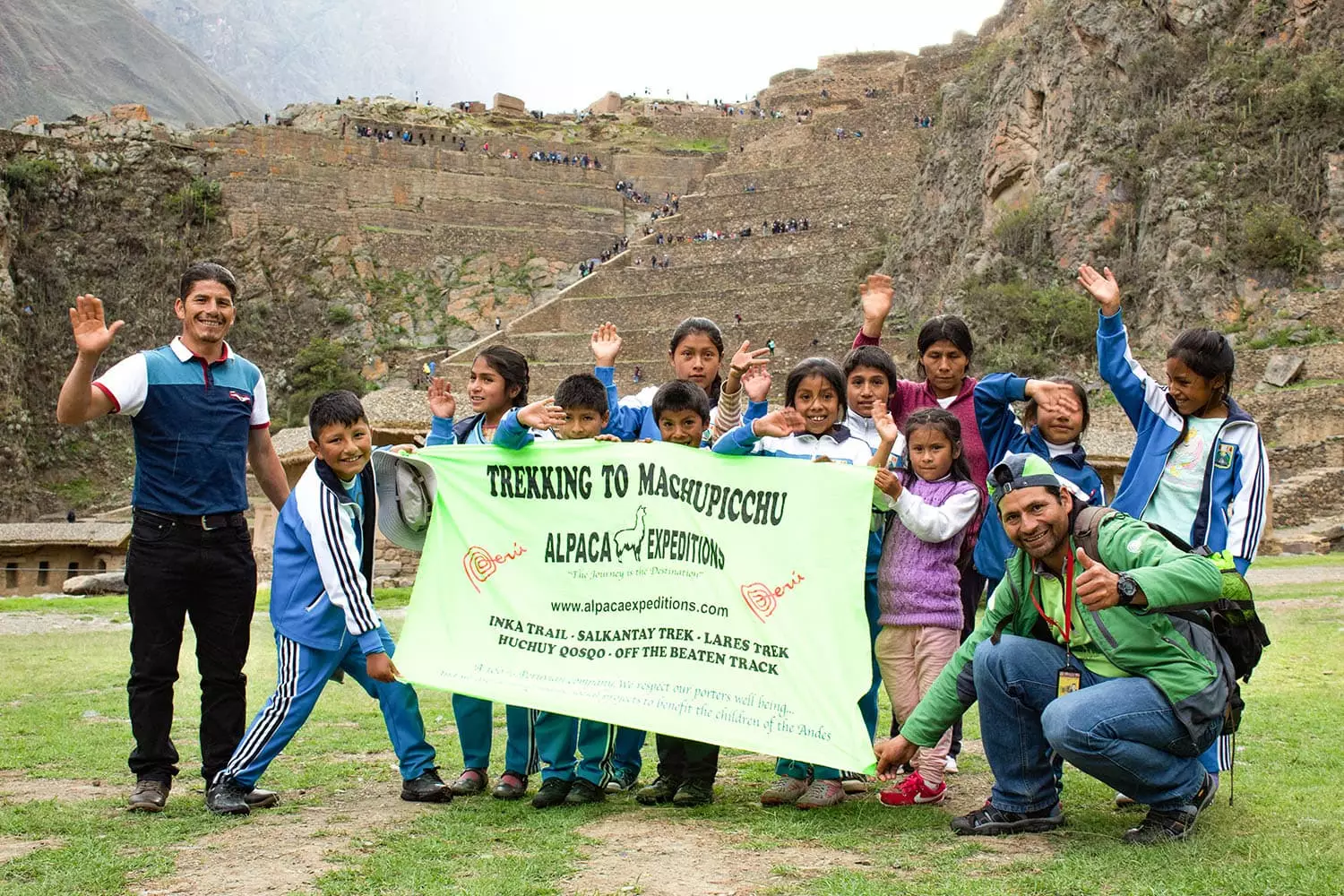
The program is designed as follows: every Sunday at least 15-17 children from ages 8 to 14 years old will be picked up from their village and go on a tour with an Alpaca Expedition guide and chef. They will learn about their culture, traditional food, and what their ancestors built. After the tour, they will be returned to their villages in the evening. Alpaca’s goal is to support at least 700 students a year to visit these sacred Inca sites, and feel proud and more profoundly connected to their rich Inca culture.
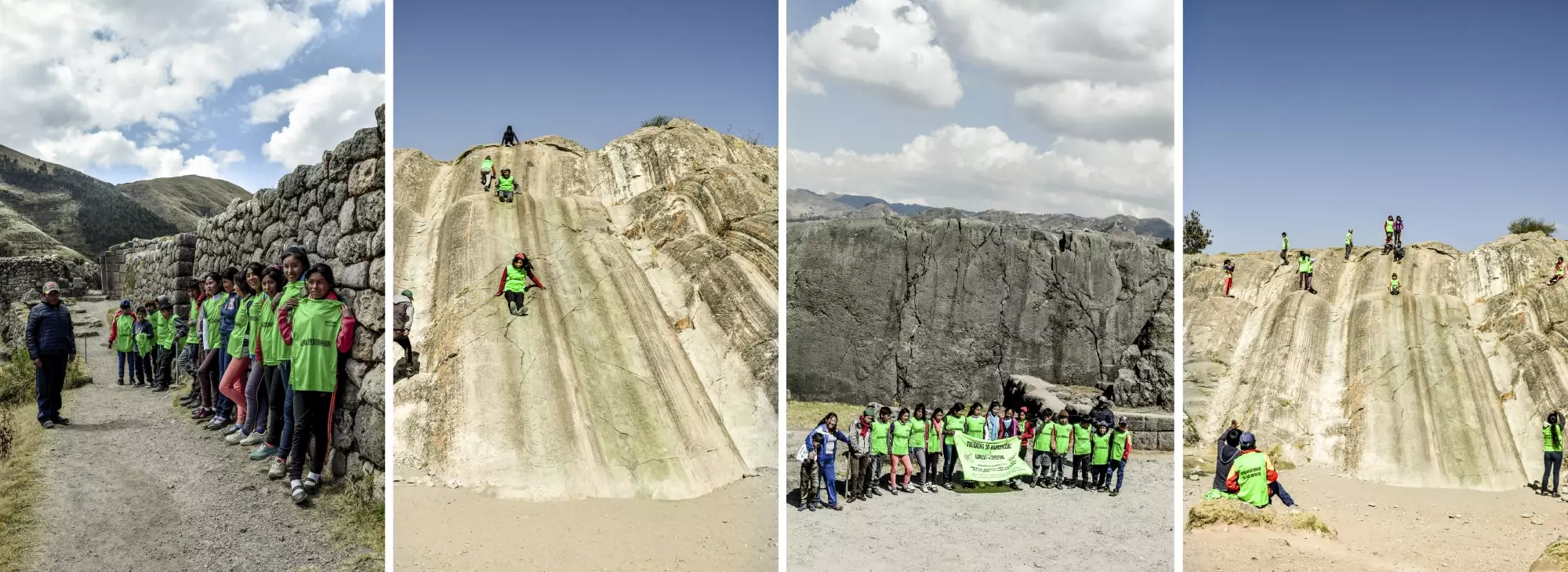
3. Bringing Indigenous Staff & Families to Machu Picchu
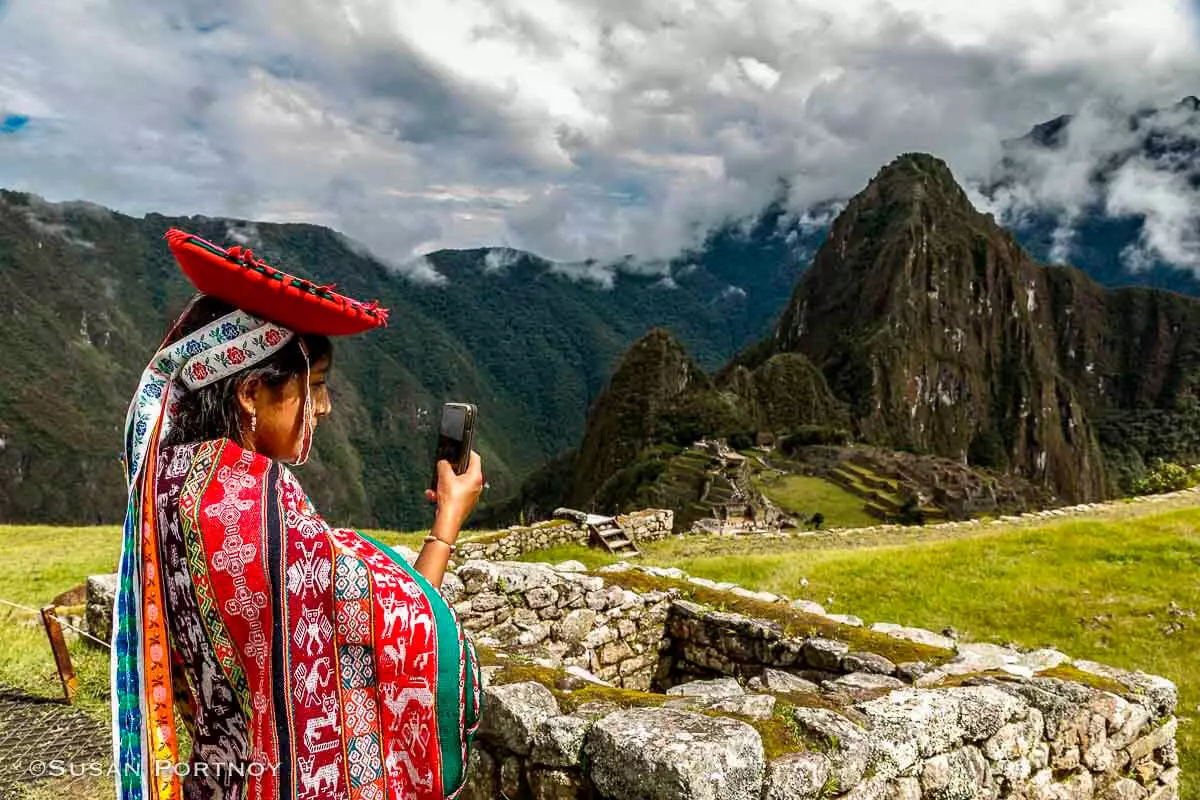
Most locals never get to go to Machu Picchu, due to expense and being crowded out by literally hundreds of thousands of tourists buying limited daily tickets. Raul was determined to help his Andean communities also experience the wonders of Machu Picchu and learn about the incredible accomplishment of their Inca ancestors. Machu Picchu is designated one of the 7 Wonders of the World today. Every year in February, when the classic Inca Trail is closed for repair, Alpaca brings staff and their families to tour Machu Picchu as guests of Alpaca. Private transportation, guides, and meals are all provided free. This is one of the most rewarding programs Alpaca runs, according to founder Raul Ccolque. Read more about this magical experience for local families by photo journalist Susan Portnoy. Photo credit: Susan Portnoy
Alpaca Expeditions Models What It Means to Act as a Responsible Environmental Steward
GSTC Pillar #4: Environmental
1. Helping Peru’s Government Improve Standards of Environmentally Responsible Trekking
Alpaca Expeditions has helped inform the standards of environmentally responsible trekking practices in the Andes since it started in 2012. The leaders and staff of Alpaca understand the impact of over 150,000 people annually hiking up the classic Inca Trail, because they see it every day. Forty percent of trekkers are tourists, and 60% are the porters and guides who support their hiking success. There are thousands more people who hike the other lesser-visited alternative trails in the region, like the Salkantay and Lares Treks.
The Peruvian government rolled out new environmental operating standards for all tour operators, based on Alpaca Expeditions’ practices. Alpaca banned single-use plastic from all its treks in 2018, and the government followed with a single-use plastic ban in Machu Picchu and on the Inca Trail in 2019. Alpaca also was the first to use biodegradable plastic garbage bags for all its treks in 2018, and in 2019 the government also made this the standard requirement for all tour operators. Since its founding, Alpaca treks all follow Leave No Trace principles and they use only biodegradable cleaners for all camp kitchens.
Alpaca Expeditions Shares with Other Tour Operators to Benefit Pachamama
Alpaca encourages and supports other tour operators to adopt rigorous environmental practices, too. They know the environment wins only when everyone takes great care of Mother Earth, or Pachamama, as the Incas call it. This kind of modeling of comprehensive, environment-first, business practices helps support the industry to keep improving, for the benefit of all.
2. Alpaca Expeditions Reduces Its Carbon Footprint
Alpaca Expeditions earned the Carbon Footprint Award – One Star in 2021 and is continues to invest in decreasing its carbon footprint. Peru is working to address climate change at a country-wide level, and Alpaca Expeditions immediately got involved. Peru joined the Climate Action Enhancement Package (CAEP), an initiative of the NDC Partnership, a global coalition of more than 180 countries and institutions supporting countries in improving the quality, increasing the ambition, and accelerating the implementation of their national climate plans. Learn more about Peru’s Carbon Footprint Program.
Reforestation of Native Queuña Trees in the Andes
Alpaca Expeditions supports annual native tree-planting programs.
The high Andes actually has a serious deforestation problem due to clearing trees for farmland, logging, and extensive farming of non-native Eucalyptus trees that degrade the soil and require 90% more water than the native, hardy, Queuña trees. To help mitigate this deforestation problem and provide valuable income to villagers, Alpaca Expeditions buys seedlings of native Queuña trees from the villagers and then donates them to villages needing to reforest their mountain slopes. Since the program started, Alpaca has helped to plant 16,000 native Queuña trees. Learn more about this reforestation program.
4. Leave No Trace in Action: Inca Trail Cleanup Campaigns
Alpaca staff also do annual trail cleanups on both the Inca Trail, as part of the government clean up program, and on alternative trails privately with Alpaca staff. Additionally, on every trek year-round, there is one porter whose entire “job” is to pick up trash along the trail, making cleanup part of every tour Alpaca leads. Leave No Trace principles are put into action at Alpaca Expeditions. Learn more about trail cleanups here.
Alpaca Expeditions Stepped Up Community Support During the Pandemic
Alpaca Expeditions closed when the pandemic hit and Peru abruptly closed its borders and stopped all tourism on March 16, 2020. The company remained mostly closed all through 2020 and 2021. In 2022, tourism is just returning in larger numbers, though full recovery is still possibly several years off as the pandemic has shifted into a global endemic of COVID variants that look to be circulating among the human population now without end.
Alpaca Expeditions kept as many staff as possible employed during the shutdown, but did have to lay off its several hundred porters and guides. Alpaca stepped up to help their staff with monetary support, and also to directly help the villages where their staff live. The Alpaca Expeditions “pandemic life raft” was bigger than protecting their company’s bottom line. They distributed hundreds of pounds of free food to remote villages during 2020 and continued in 2021. The Peruvian government was not able to offer the kinds of direct, emergency economic support that other countries did like the USA, Canada, and European countries. The company reassigned some staff into new positions and in the process unleashed new creativity with extensive all-new educational content about Peru, the Inca culture, and virtual tours. Explore videos in their new AE TV series here.
Post Pandemic Travel Changes for 2022 and Beyond
Alpaca Expeditions quickly made changes in their tourism products to support the needs of future customers and protect its staff. They now offer private options for all group tours and treks, at a minimum of only 2 guests needed to book. Alpaca Expeditions has also added a diverse assortment of new non-trekking tours in the Cusco region and in Lima. This better supports less active travelers who want the adventure, heritage and culinary experience of authentic adventure travel tourism, but are less inclined to camp and hike in rugged terrain at high altitude.
Traveling to Peru to Hike to Machu Picchu
Yes, you CAN make a difference on your lifetime adventure to Peru!
Ready to experience the wonders of Peru’s rich Inca history, Machu Picchu, and the spectacular scenery of the Andes mountains?Inca Trail Permits are required only hiking the entire Classic Inca Trail. Annual permits are released in early October for the next travel year. Reserve Inca trail treks 6-12 months early to guarantee you get the trekking dates you want. Alpaca Expeditions has the best success rate at getting the required Peruvian government Inca Trail permits for their customers – 95%. Learn more about what Inca Trail Permits are and how they work.
Alternative Treks – like Salkantay, Lares, and more, do not require the special Inca Trail Permits. As a result, they are more flexible and less crowded treks that you can book with less advanced notice. Explore Alternative Treks.
Making Sustainable Tourism Work in Peru Adventure Trekking
Sustainable tourism development guidelines and management practices are applicable to all forms of tourism in all types of destinations, including mass tourism and niche tourism segments.
– UNWTO
Alpaca Expeditions navigates mass and niche tourism by doubling down on executing their four pillars of sustainable tourism. They empower and support local communities, while minimizing their impact on the environment, implementing regenerative environmental practices, and sharing, honoring and preserving their ancient Inca culture for future generations.
The Alpaca Expeditions’ promise is to keep our culture and land for the future generations to come. A promise that is kept by all of our staff and also with our clients.
Raul Ccolque, founder of Alpaca Expeditions.
Alpaca Expeditions Recognitions
ISO (International Organization for Standardization)
In the pursuit to stand out from the rest, Alpaca Expeditions has obtained four ISOs plus our carbon footprint certificate to date. These achievements result from our efforts to implement the internationally-recognized integrated management system. They also represent our commitment to all of our clients and staff of operating sustainability and responsibility in every way possible.
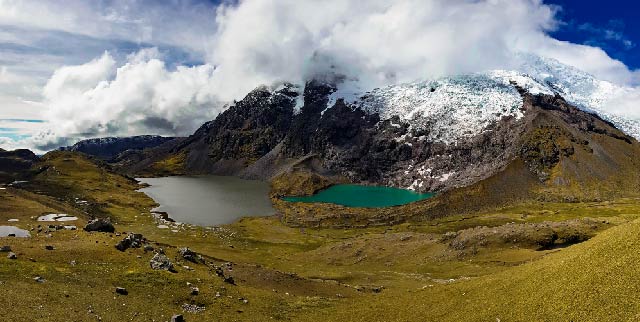





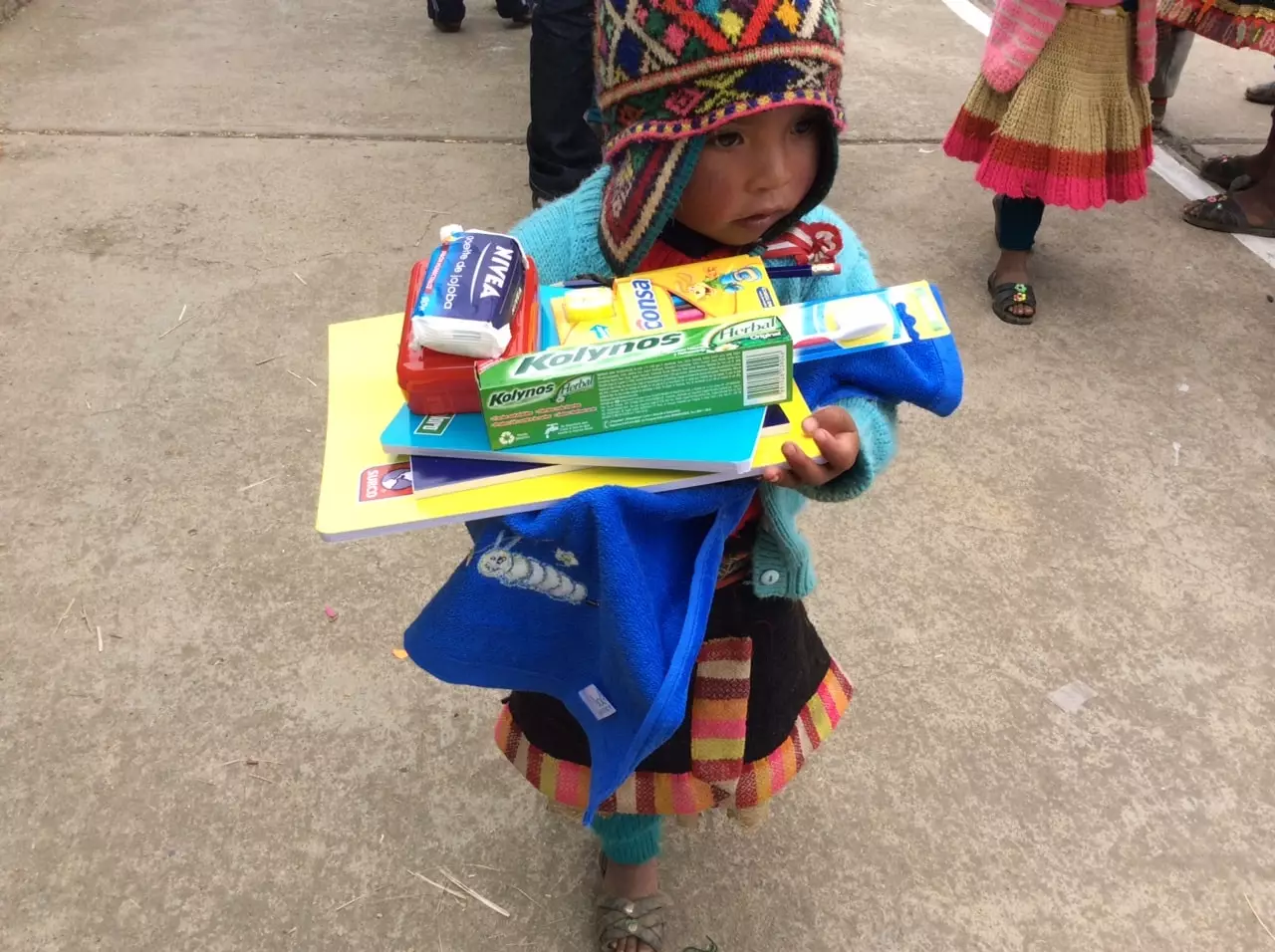
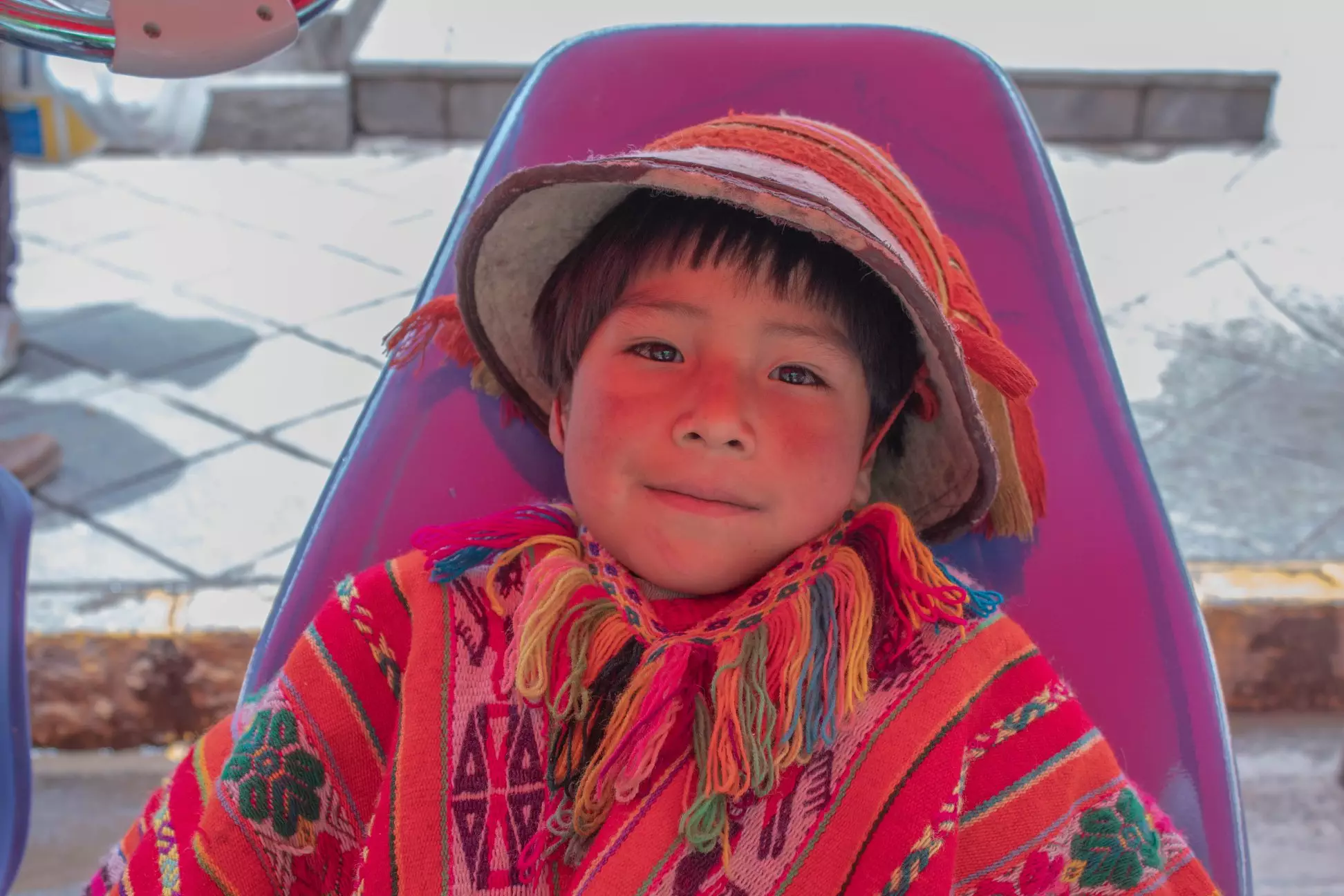
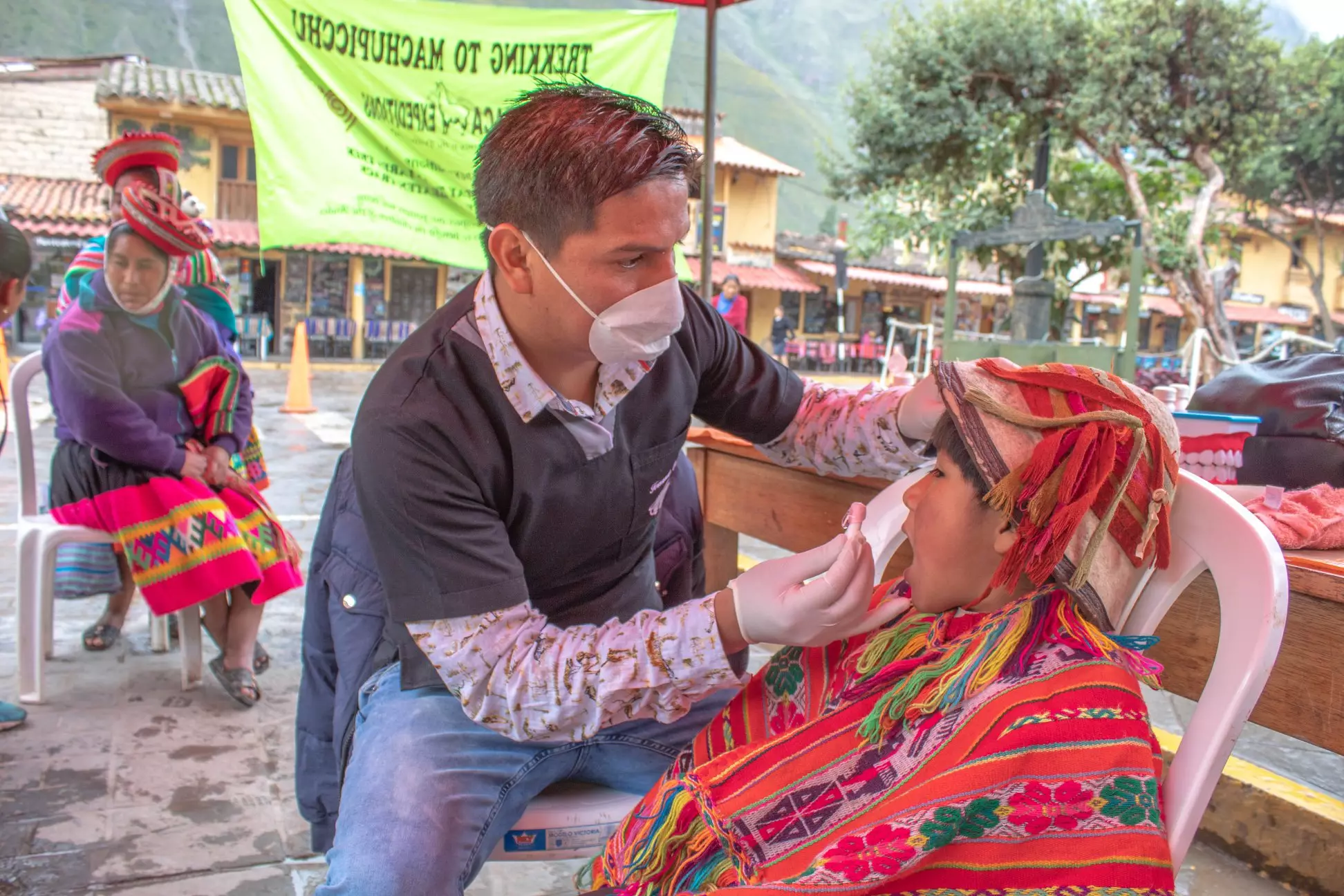
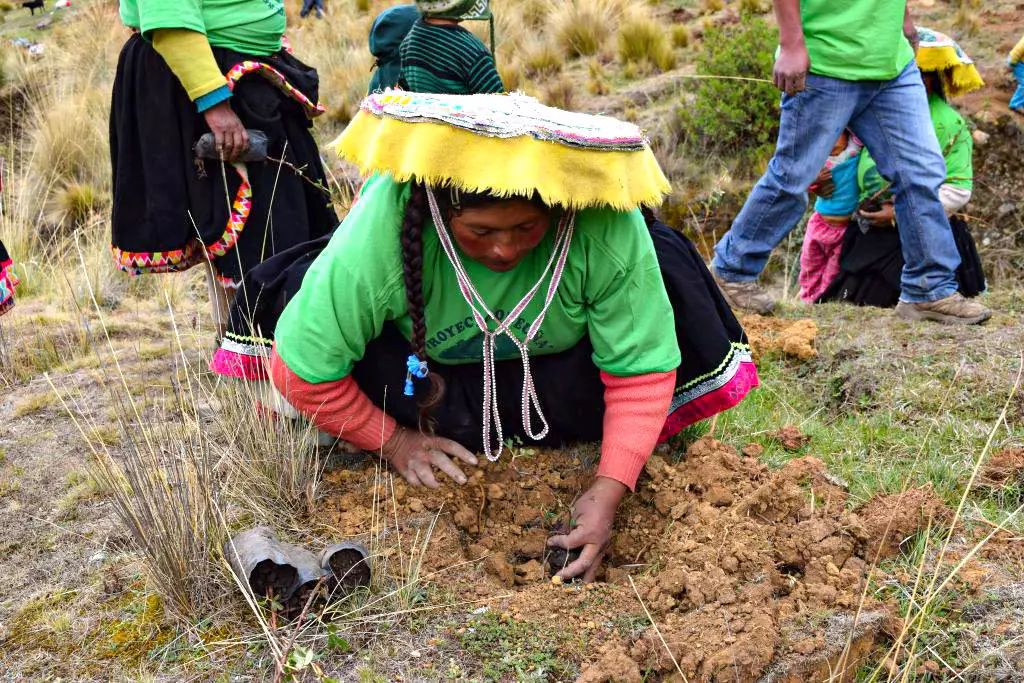
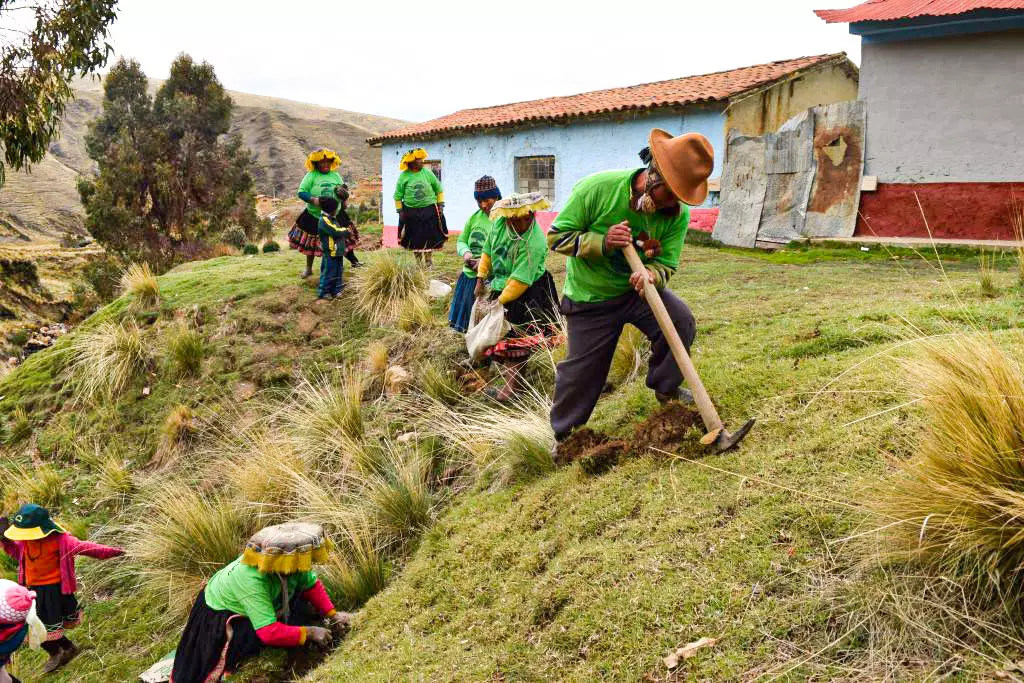
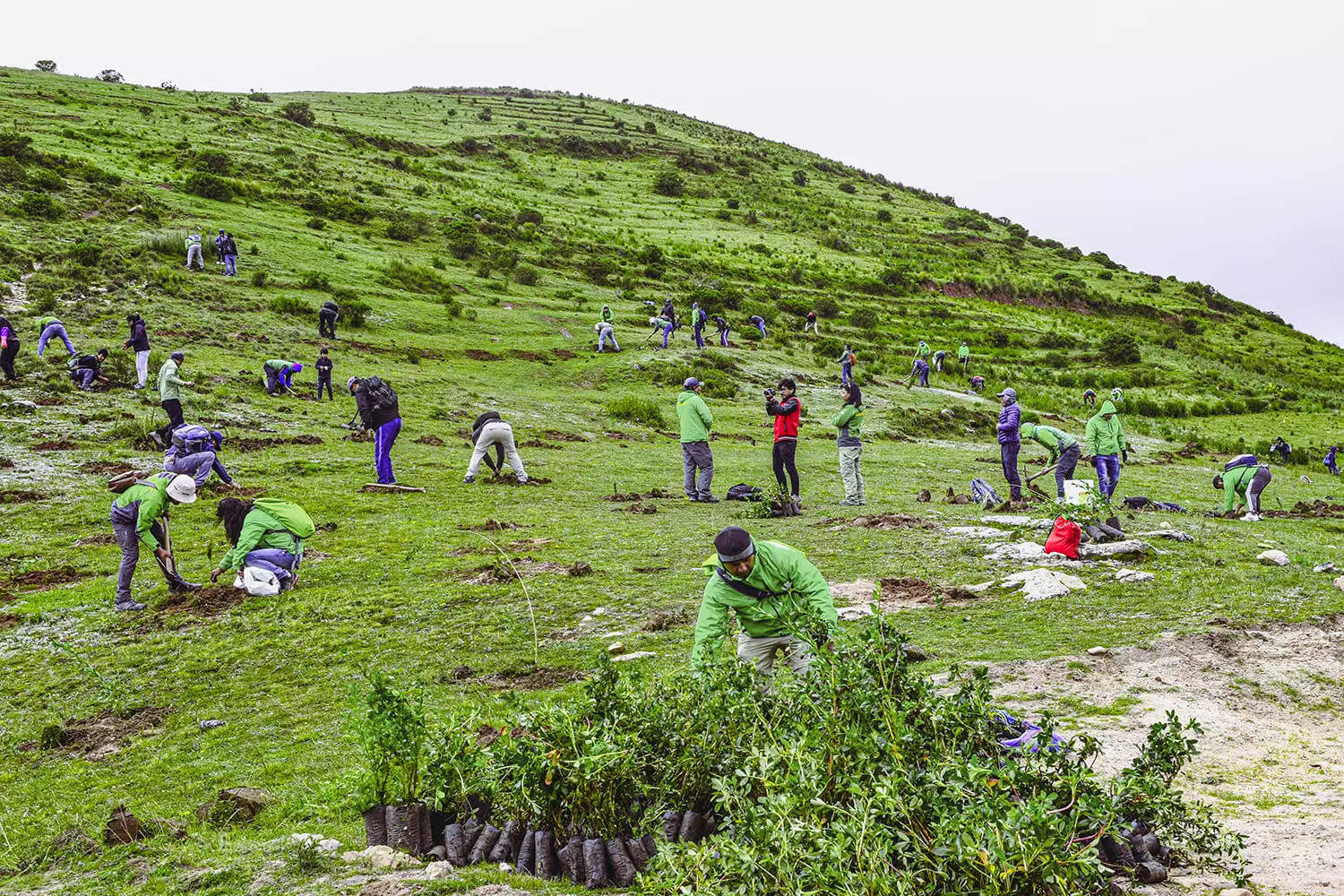
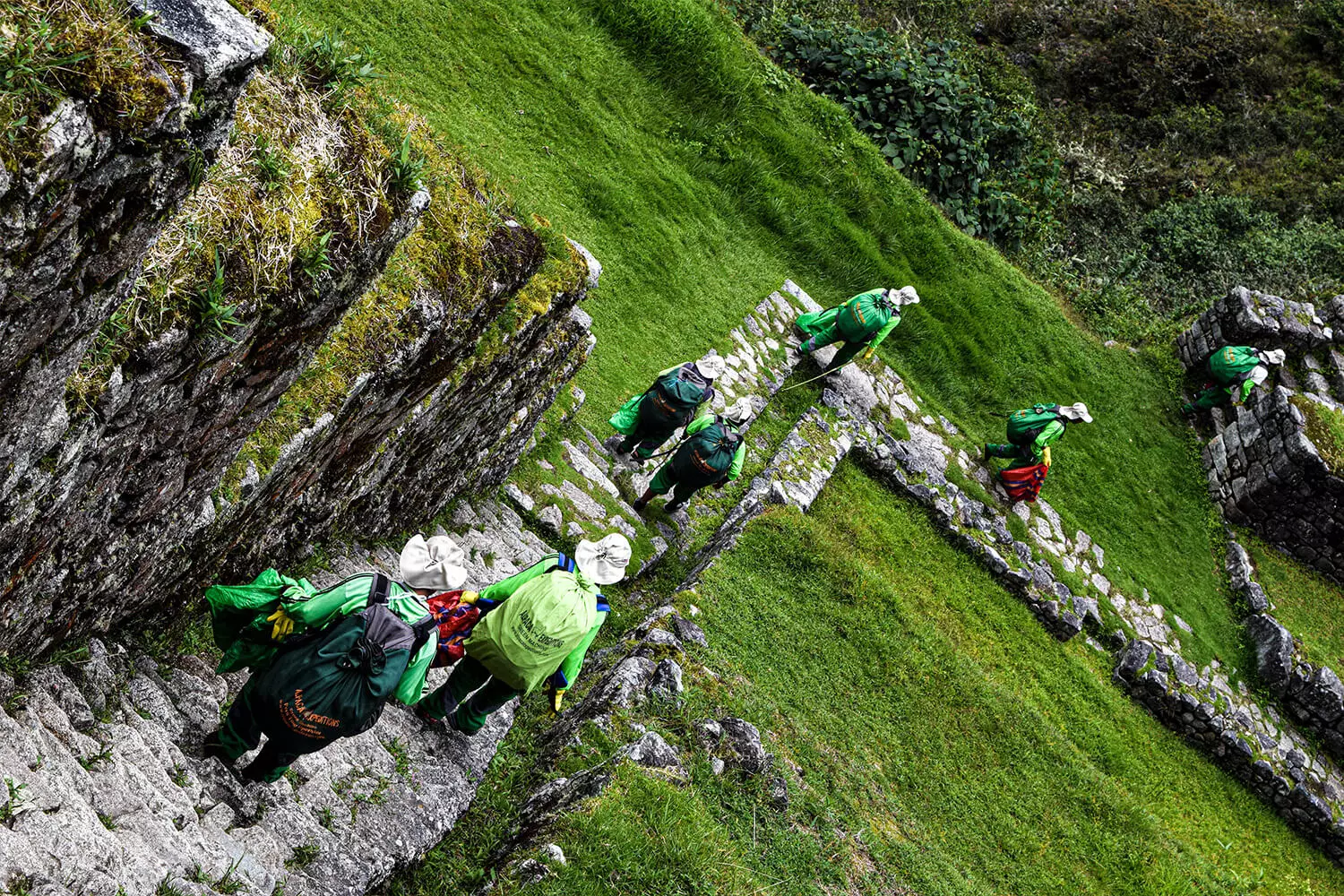
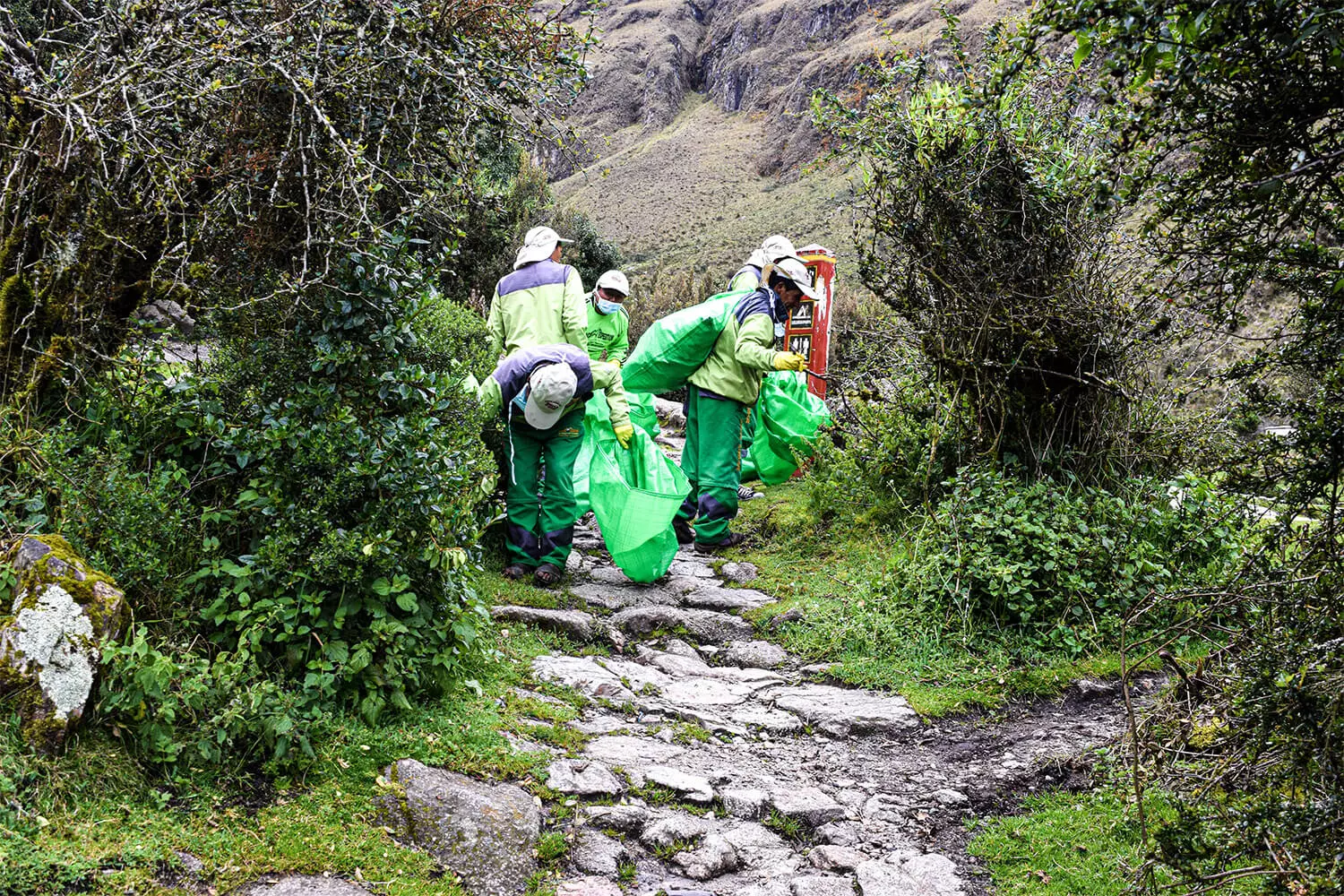
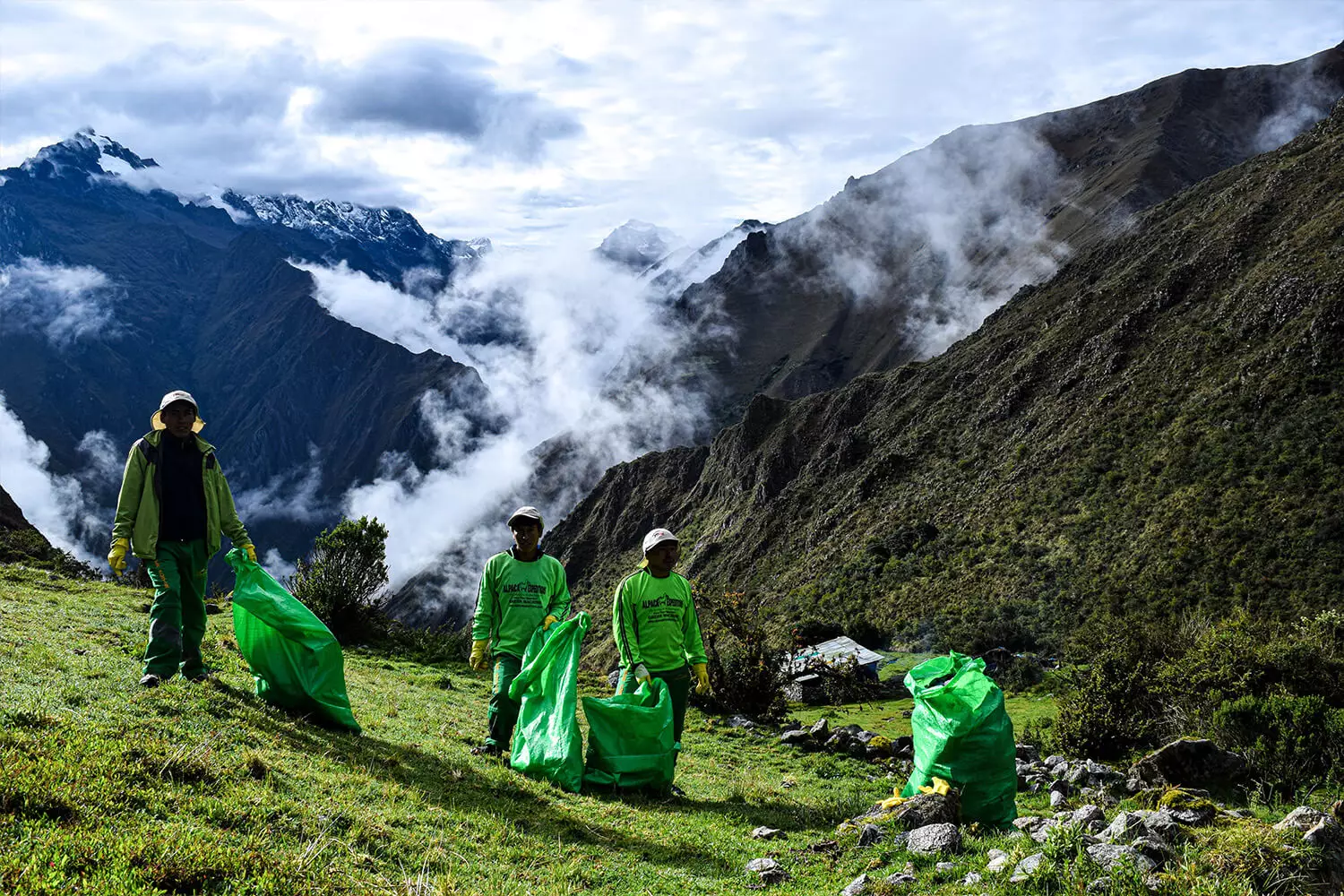
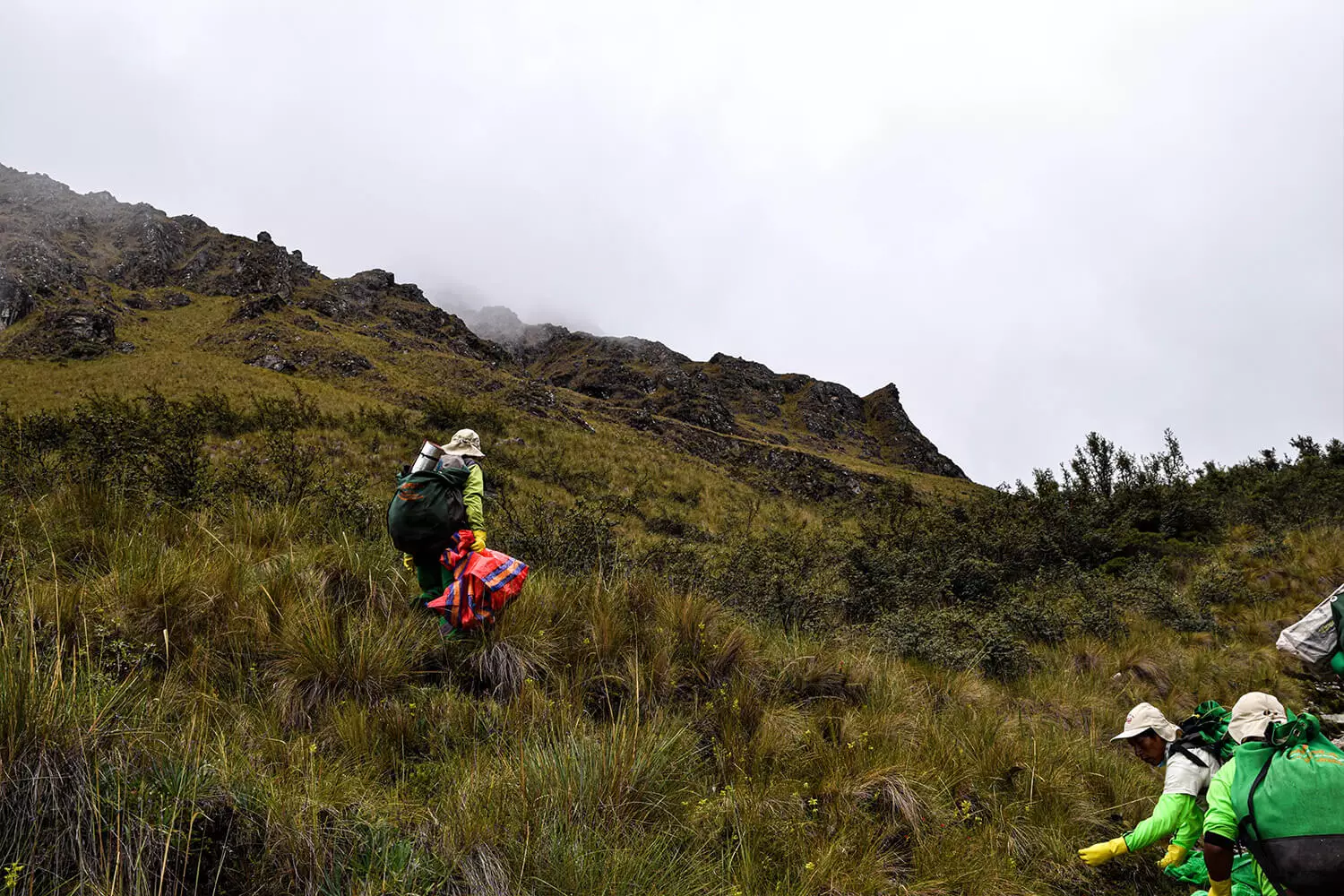
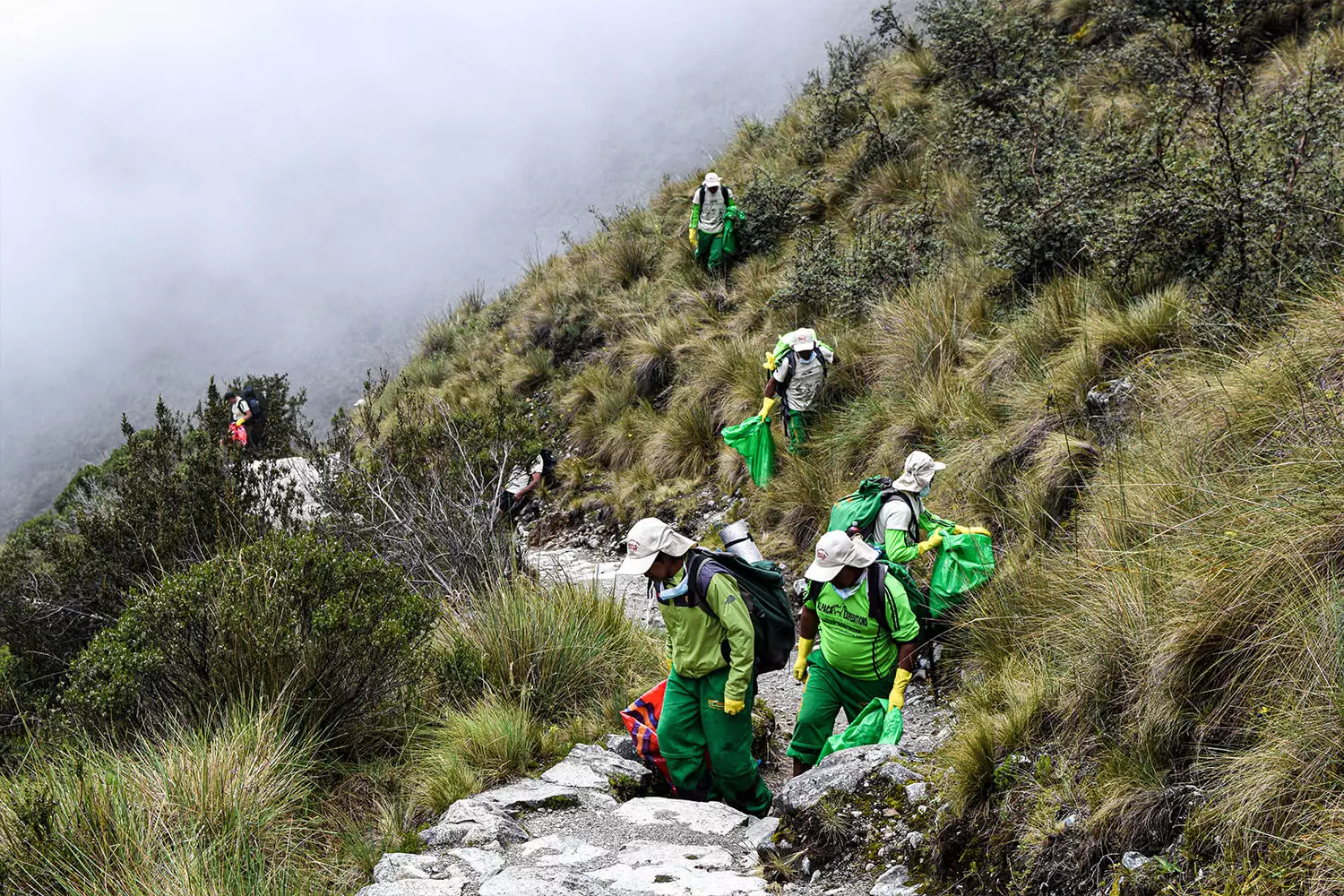
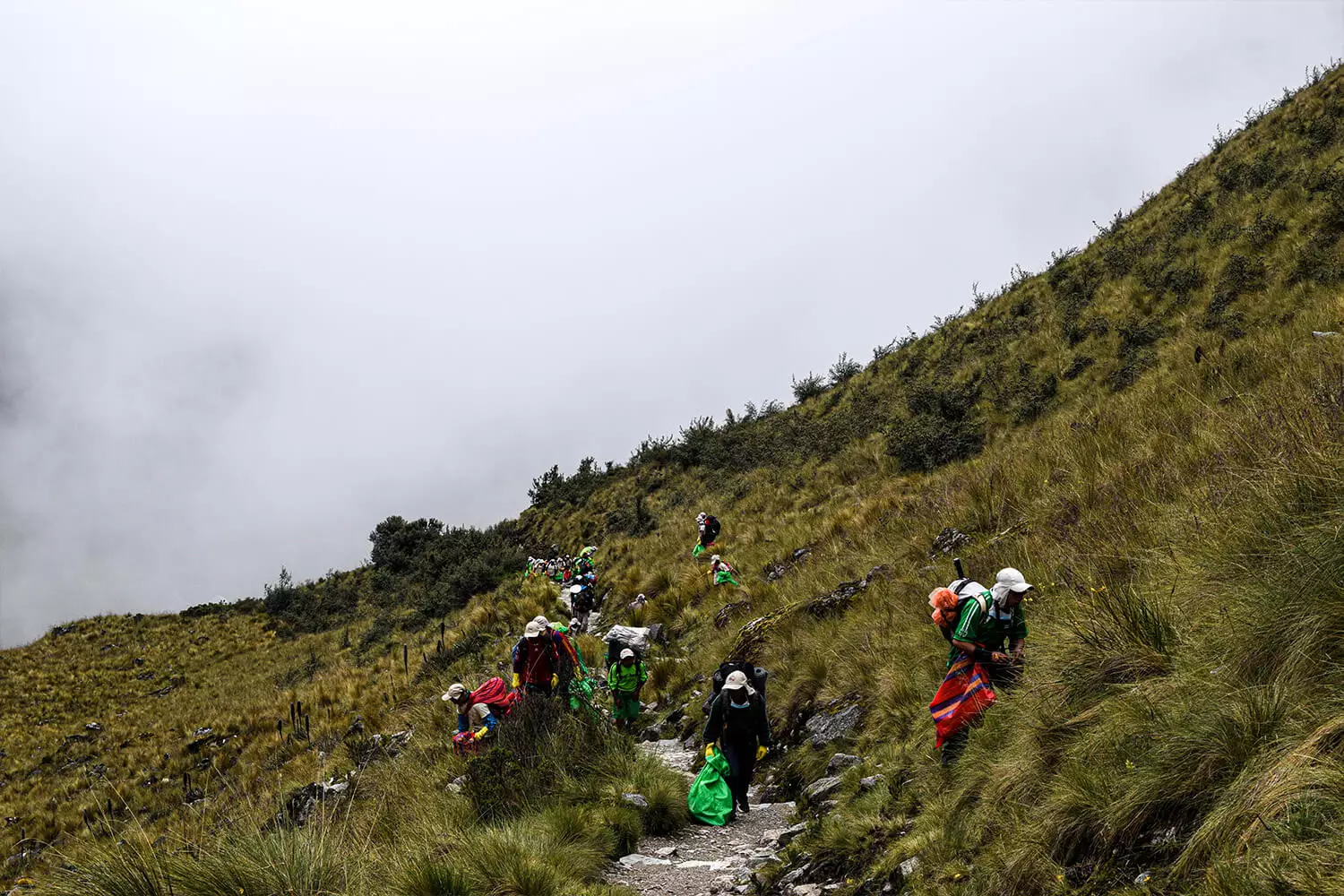




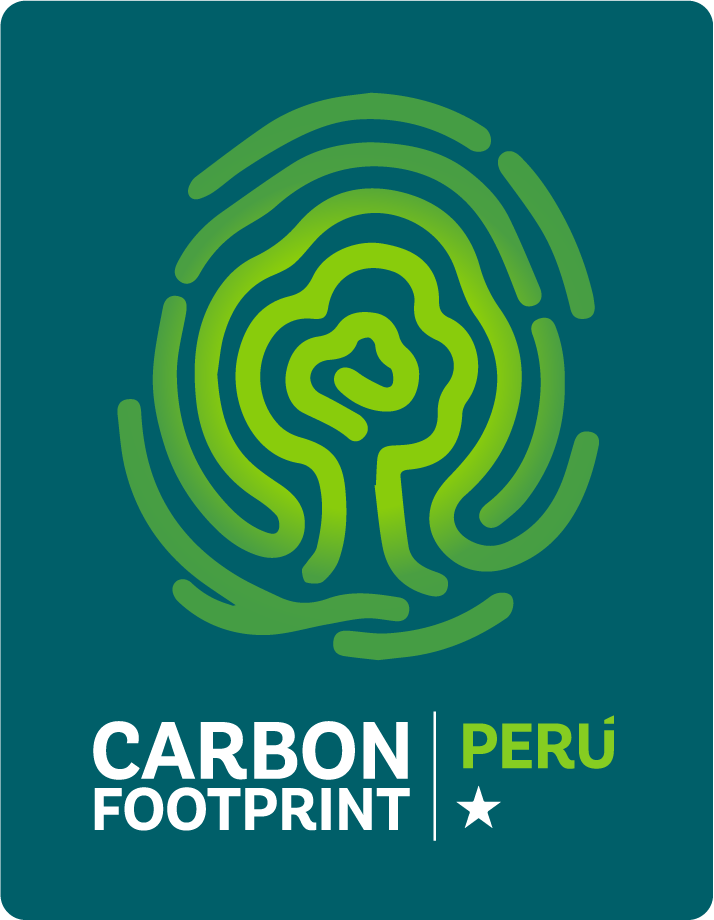
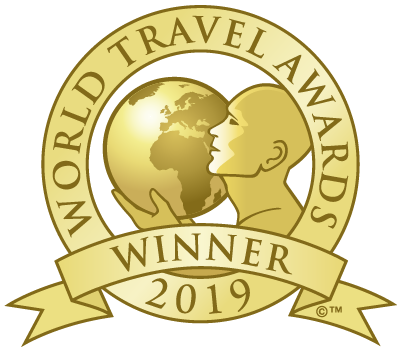








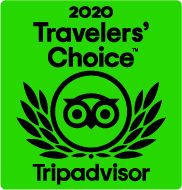
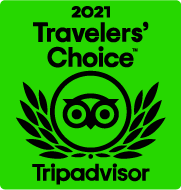
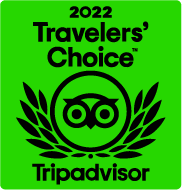
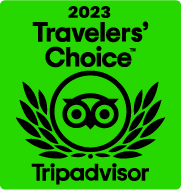
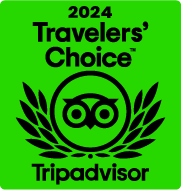














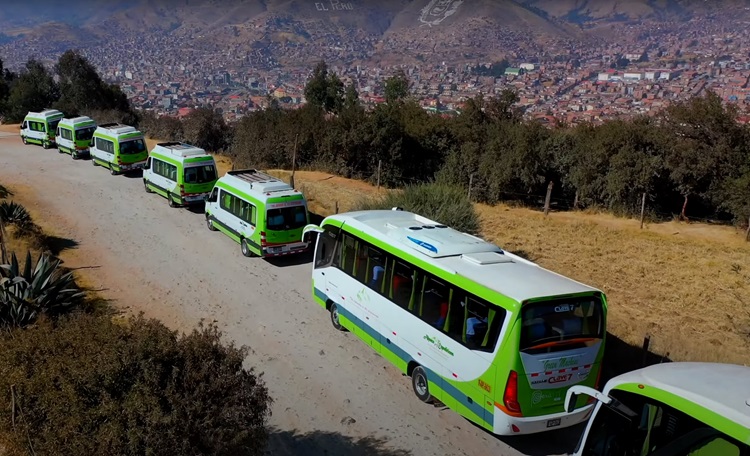
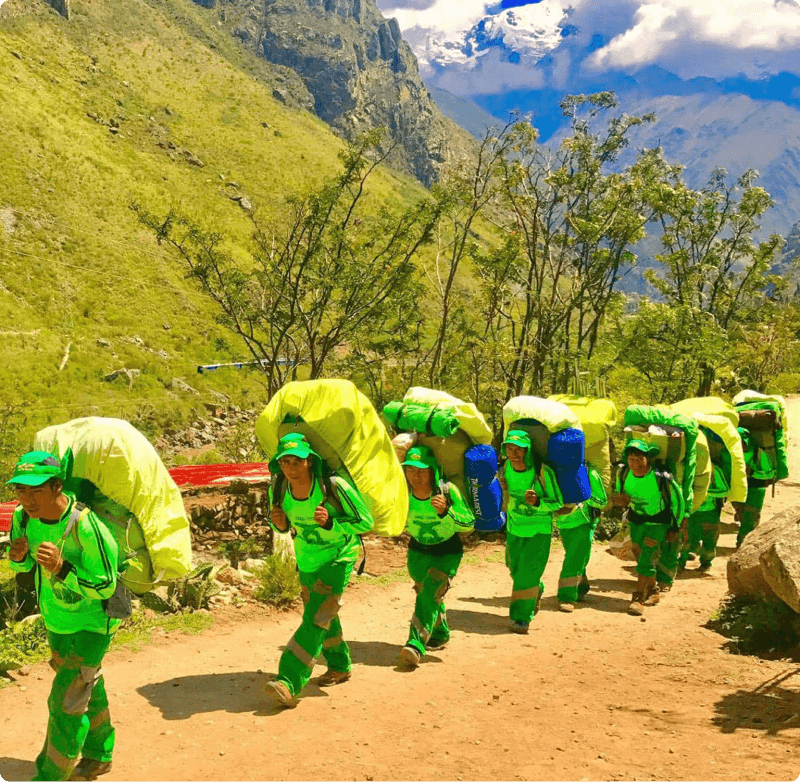 Porters will carry up to 7 kg of your personal items, which must include your sleeping bag and air mat (if you bring or rent one). From us, these two items weigh a combined total of 3.5 kg.
Porters will carry up to 7 kg of your personal items, which must include your sleeping bag and air mat (if you bring or rent one). From us, these two items weigh a combined total of 3.5 kg.